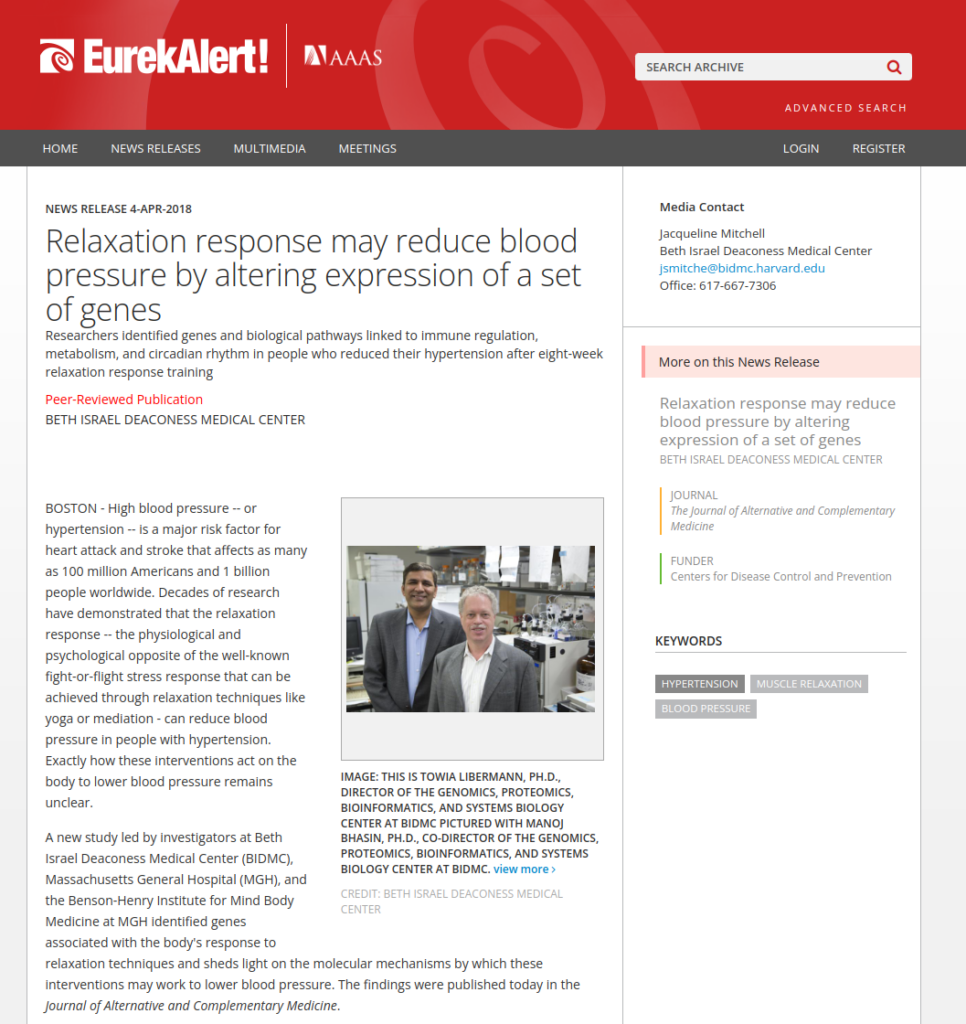Publication
AAAS Eureka Alert
Abstract
Researchers identified genes and biological pathways linked to immune regulation, metabolism, and circadian rhythm in people who reduced their hypertension after eight-week relaxation response training
Web and Email Links
Related Listings
Journal
Minn Med.
Although the physiological and biochemical changes that occur during the acute stress response have been well-characterized, the contrasting changes that underlie the relaxation response evoked by various mind-body techniques are less understood. To help guide future mind-body research, we present a conceptual model that integrates patterns of change at the physiological and molecular levels. In addition, we point to future research opportunities and discuss how repeated elicitation o […]
Journal
Journal of Human Stress
Oxygen consumption is usually considered to be predictable and unalterable at a fixed work intensity. The relaxation response is hypothesized to be an integrated hypothalamic response which results in generalized decreased sympathetic nervous system activity. One physiologic manifestation of the relaxation response is decreased oxygen consumption. The possibility that the elicitation of the relaxation response could decrease oxygen consumption at a fixed work intensity was investigate […]
Journal
Journal of Clinical Medicine
Stress is a term used to define the body’s physiological and psychological reactions to circumstances that require behavioral adjustment [1,2,3], and the relaxation response is a psychophysiological state that is opposite to that of the stress or fight–flight response [4]. A variety of mind/body techniques can be used to elicit a relaxation response and achieve the therapeutic effects associated with reduced blood pressure. For example, researchers at the Cochrane Review [5] investiga […]

